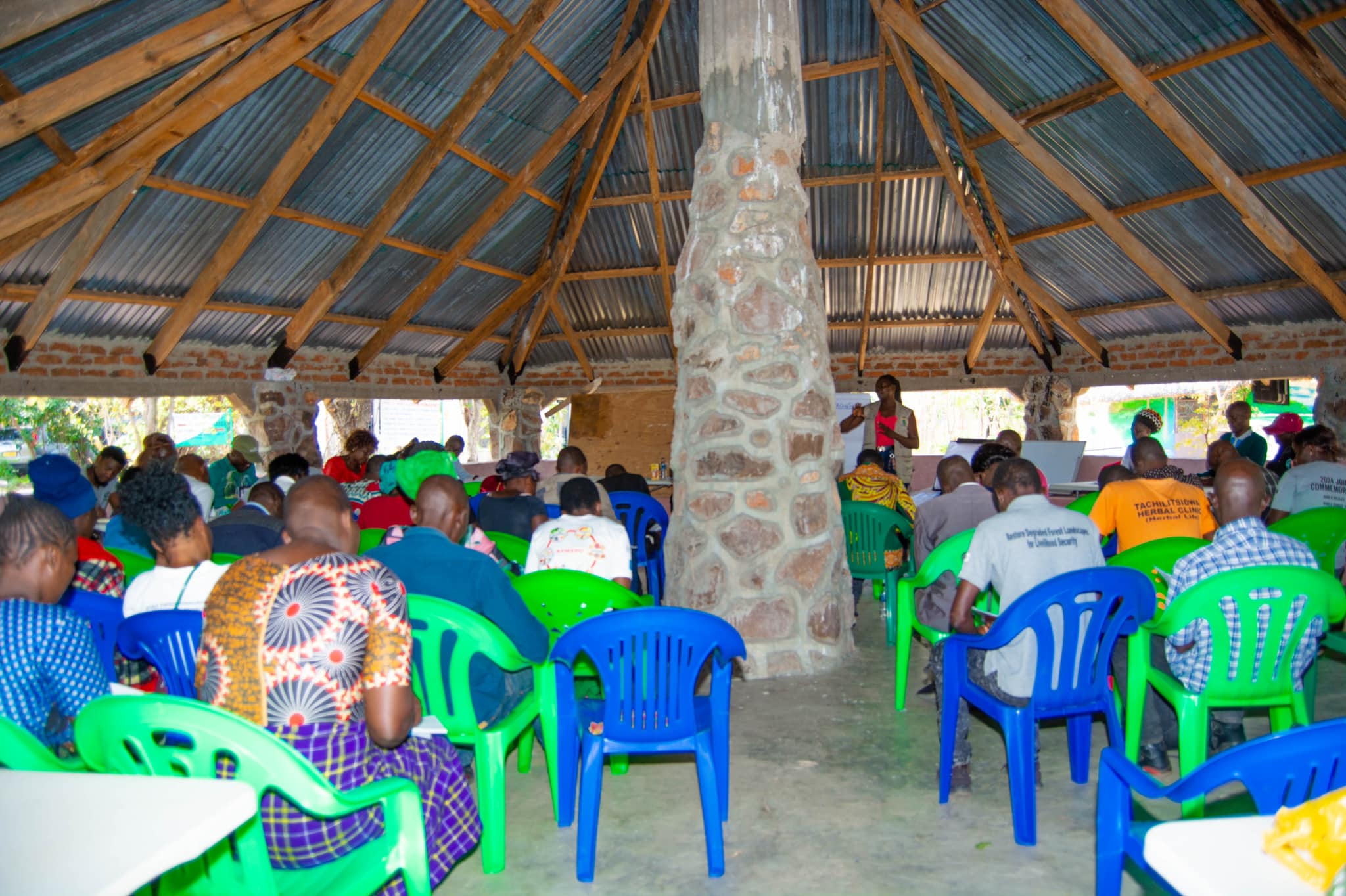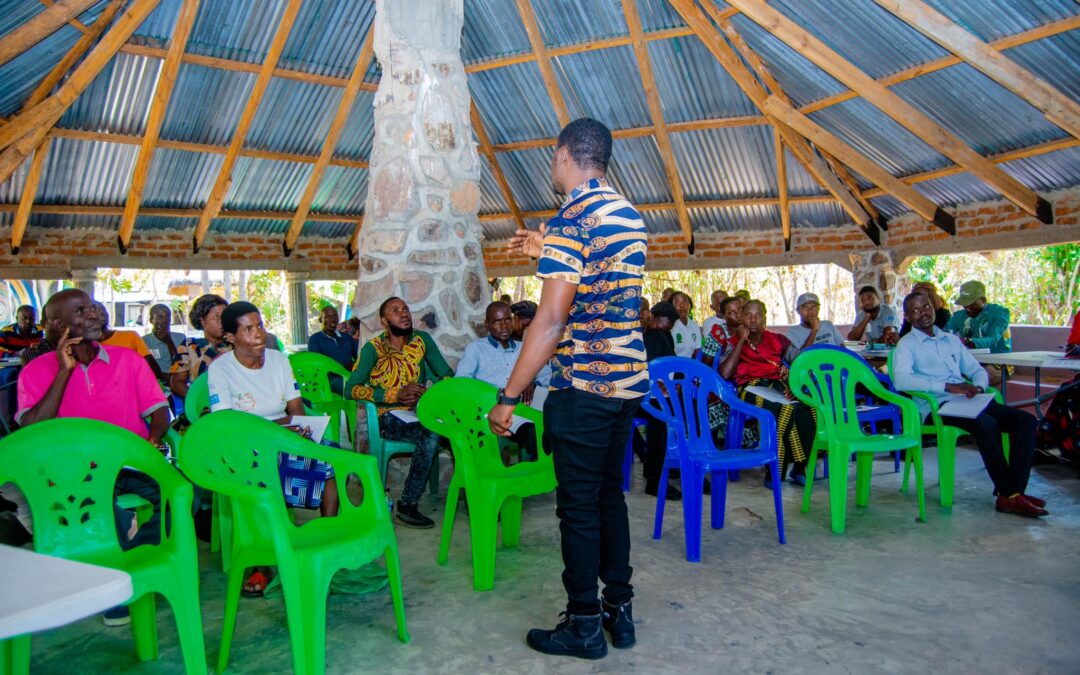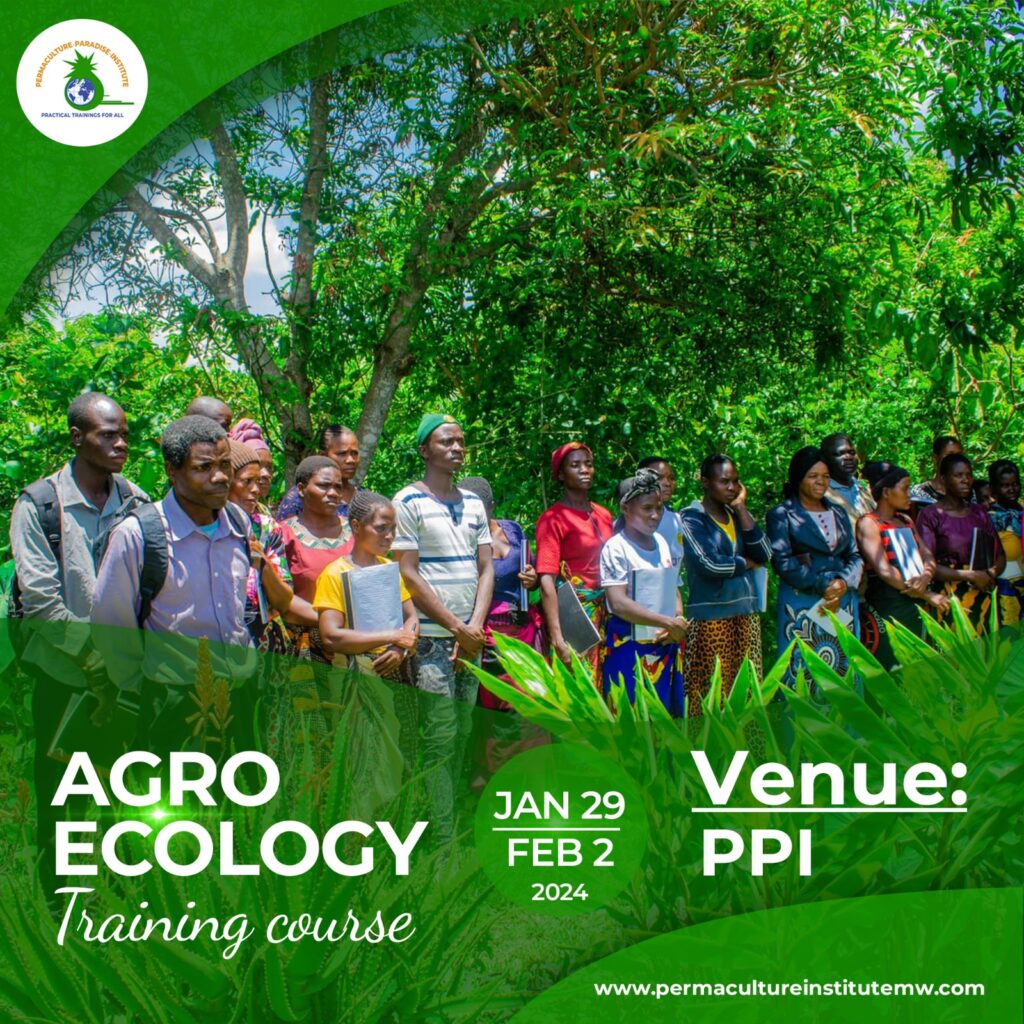On the first day of an exciting 5-day Permaculture training, 62 eager farmers gathered from across northern and central Malawi, representing the Nyika-Vwaza Association (NVA) and the Nkhotakota Wildlife Reserve Association (NAWIRA). These farmers, deeply rooted in their communities, are united by a common goal: to restore the degraded forests surrounding two of Malawi’s most critical wildlife reserves.

As the morning sun warmed the training grounds, a palpable sense of excitement filled the air. These dedicated individuals have come together not just to learn, but to lead the charge in rejuvenating Malawi’s forests, which are vital for preserving biodiversity and ensuring environmental stability. Their work is part of a broader forest reserve restoration initiative that seeks to combat deforestation and bring life back to ecosystems that have long been under threat.
Today’s session kicked off with an introduction to the principles of Permaculture, focusing on sustainable farming techniques that mirror nature’s patterns. By applying these methods, the farmers aim to regenerate the land, increase food security, and create a sustainable income stream for their families and communities.
The participants were engaged in interactive discussions and demonstrations, covering topics such as soil regeneration, water harvesting, and agroforestry techniques. One farmer from northern Malawi remarked, “This is exactly the kind of knowledge we need to help our communities thrive while protecting our natural resources.”
This training represents a unique collaboration between local farmers and conservation organizations. The farmers from NVA and NAWIRA are at the forefront of this restoration project, playing a vital role in preserving wildlife habitats within the Nyika-Vwaza and Nkhotakota reserves. By combining traditional farming knowledge with modern Permaculture practices, these farmers are becoming guardians of the land, fostering resilience in the face of climate change.
The journey has just begun, and over the next four days, these farmers will continue to build their skills in various areas, including tree planting, ecosystem management, and permaculture design. By the end of the training, they will be equipped with the tools to lead forest restoration efforts in their communities, contributing to a healthier environment and a more sustainable future.
Stay tuned for updates from this transformative training, where the seeds of change are being planted, literally and figuratively across northern and central Malawi.



